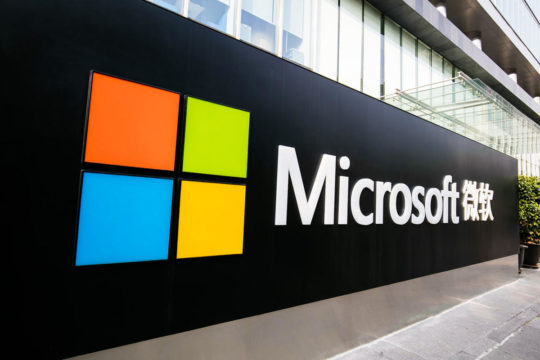With money pouring in, we’re likely to see a lot more from big tech’s AI portfolio. From a race towards a better LLM, AI is taking the race to everything else as the seemingly inevitable technology penetrates every aspect of hardware and software professing to make things better and faster.
In June, Nvidia became the world’s most valuable company when its shares rallied, a clear indication of how big a role investors expect AI to play in the global economy in the near future.
Read more: Will Apple’s India shift lower its high end prices for the Indian consumer?
The reason, big tech’s constant push on outdoing each other in AI. OpenAI’s GPT-4o has been slaying it. Sam Altman called it the future of language AI. Last September, OpenAI unveiled its latest art tool, DALL-E 3. Meanwhile, Google also launched the Gemini mobile app in India, available in English and nine other Indian languages.
Microsoft CEO Satya Nadella’s US$13 billion investment in OpenAI was only the beginning. The Wall Street Journal called Microsoft “the world’s most aggressive amasser of AI talent, tools, and technology” and it’s not unfounded. The tech giant is beginning to create an in-house OpenAI competitor.
The company unveiled a range of AI-infused consumer-focused PCs, Copilot+ PCs, claiming the devices are “the fastest, most intelligent Windows PCs ever built. With powerful new silicon capable of an incredible 40+ TOPS (trillion operations per second), all–day battery life and access to the most advanced AI models, Copilot+ PCs will enable you to do things you can’t on any other PC,” they said in a blog post. Nadella also said that new AI PCs will revive PC-Mac rivalry.
May saw two major AI events, OpenAI Spring Update and Google I/O. Google I/O’s Project Astra, with advanced seeing and talking responsive agents and OpenAI’s GPT-4o, with reasoning across audio, vision, and text in real time, were the highlights. As the AIM said, “The capabilities of these technologies basically make grandmothers out of Siri and Alexa.”
Google has now also rolled out more tools for advertisers, which includes new formats for AI-generated search.
It’s no wonder that Amazon is planning to revamp its Alexa service to include a conversational generative AI with two tiers of service while considering a monthly fee of around US$5 when accessing the superior version. Same way, in June, Apple showcased how it is integrating AI across its software suite, including a revamped Siri voice assistant and a possible tie-up with ChatGPT owner OpenAI, at its annual developer conference.
What we see in 2024 is a continuation of last year’s AI disruption. Other players entered the AI arena. Experts were divided and spoilt for choice. Last year, according to some, French AI startup Mistral AI’s latest LLM, Mistral 7B released on an Apache 2.0 license, performed better on many accounts than Meta’s Llama while being a true open-source champion. They say this new model proves that small models can actually perform a lot better than their larger counterparts, which is the whole point of open source.
On the other hand, some loved Meta’s newly released Code Llama. One developer called it the “most accomplished open-sourced code generator to date.” Llama joins a growing pack that includes GitHub Copilot, Amazon CodeWhisperer, and open source options StarCoder, StableCode, and PolyCoder.
Noteworthy organizations like PayPal have been launching AI tools too. John Kim, Chief Product Officer of PayPal revealed in an interview to Associated Press that the payments giant has rolled out a feature that uses AI to keep track of all the permutations of user addresses and personal information and use AI to predict the right one to use with the right merchant.
We currently try to detect unusual patterns — for example, patterns where fraudsters are trying to test your stolen card out to see if it’s good or not — and alert you through the PayPal wallet so you can get that card shut down with your bank quickly. But detecting these patterns can get really complicated, and the patterns can change on the fly, so AI we believe will help us anticipate these changes and keep us ahead
John Kim, Chief Product Officer of PayPal
“We currently try to detect unusual patterns — for example, patterns where fraudsters are trying to test your stolen card out to see if it’s good or not — and alert you through the PayPal wallet so you can get that card shut down with your bank quickly. But detecting these patterns can get really complicated, and the patterns can change on the fly, so AI we believe will help us anticipate these changes and keep us ahead,” he said.
Also last year, Yahoo introduced new AI-powered capabilities, including a ‘Shopping Saver’ tool and upgrades to several of Yahoo Mail’s existing AI features. Even Shaq has invested in an AI EdTech startup.
In September Adobe too rolled out AI features, increasing prices as well as salaries.
Intel revealed an ambitious AI-focused roadmap at Intel Innovation 2023, signalling its determination to compete with NVIDIA, AMD, and Apple in the AI arena. Its Meteor Lake processor aims to enable power-efficient AI acceleration and local inference on personal computers, making AI capabilities accessible without relying on cloud data centres.
This aligns with Intel’s vision of democratising AI with an “AI PC” concept. The company also introduced the Intel Developer Cloud platform for developers to test and deploy AI and high-performance computing applications.
Read more: The big tech AI race has blazed all through 2023. What will 2024 bring?
Investors are lining up to pour money into AI. Investors like Japanese investment holding firm SoftBank are looking to invest in AI, potentially in OpenAI. Despite reporting a net loss of $3.3 billion, SoftBank is poised to capitalize on the AI boom. The Group’s Vision Fund 2 is investing in US startup Perplexity AI at a US$3 billion valuation.
OpenAI is projected to surpass US$1 billion in revenue over the next year, a significant increase from its earlier estimate of $200 million for the current year. With monthly revenues exceeding $80 million, SoftBank’s interest in OpenAI could prove to be a smart move. These strategic investments are part of efforts to recover from past blunders, such as selling its entire portfolio of NVIDIA shares in 2019, now worth significantly more.
Consulting firm EY announced a US$1.4B investment into AI. The professional services company also created its own large language model, EY.ai EYQ accessible to its 400,000 employees.
AI has arrived on the tech scene and one by one is disrupting every aspect. The results of AI’s prowess are so fast and visible that investments are not going to be a problem at all. And these very investments will push the technology on to greater heights.












